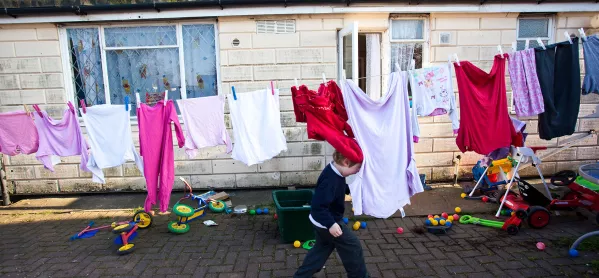- Home
- A reminder for teachers: you are changing lives
A reminder for teachers: you are changing lives

It has been said that the children who need the most love ask for it in the least loving ways. This can be particularly true of those students who end up in pupil referral units (PRUs).
Many of these pupils are still in the mainstream right now. They are the ones who make you silently scream in frustration.
They are the ones who almost push you to lose it. They are the ones you lose sleep about.
Quick read: ‘Parenting can bridge the disadvantage gap - the research is clear’
Quick listen: How to train a teacher
Want to know more? Lessons from prison education
Should they get another chance? Should you be harsher? Do they require stricter boundaries? Should you refer this to an external agency?
We face these decisions on a daily basis and hope that we are making the right calls. But we often remain unsure of whether we did.
During a recent Inset, Kate Cairns of KCA Training (partners in our journey to embed attachment and trauma-informed practice across all aspects of our PRU) offered a sage thought.
In a quiet, authoritative tone, she told us: “You don’t know the good that you do.”
She used the phrase throughout our training session, giving us time to digest what it might mean to us personally as practitioners.
Strategic thinking
In education, we operate within a framework of ongoing scrutiny and assessment. But what about the strategies we don’t assess? Or the outcomes of things we don’t even perceive to be strategies?
Like the time, years ago, when you offered words of support to a pupil even though you had no idea how they felt at the time. They still think about it years later.
It stays with them, and has become a positive memory in an ocean of adolescent uncertainty. They recall it with fondness when they look back on that difficult time.
All teachers can have this kind of impact, and it is a huge part of why many enter the profession.

Working in a PRU, we are fortunate to have this opportunity a lot: we work intensively with our pupils and their families, often becoming significant attachment figures for them, helping to promote positive outcomes and offering support well beyond their time with us.
Teaching is a challenging job and the daily grind - data entry, departmental meetings and marking - means that we often don’t have the mental capacity to appreciate the difference we are making beyond the curriculum.
This is particularly relevant when pupils are exhibiting unproductive behaviours; it is up to us to move beyond the visible symptoms and provide strategies with which they can modify their thoughts, feelings and emotions.
This can feel be an exhausting and relentless process at times, but we must always remember that (perhaps despite the rhetoric of some newspapers) our pupils are warm, smart, quick and they, and their families, want the best possible outcomes possible, both at school and in life.
The black dot
During the ebb and flow of staff energy that occurs over the course of the term, we make a point of using a simple, but potent, illustration from Bill Rogers with our team.
It features a black dot in a square of otherwise white space. We ask them what they see. The first time, most notice the dot, representing a negative incident, or troubling feeling.
But every other time afterwards they recognise the majority of white space within the box, representing the effort they are putting in, the good practice they engaged in and the positive relationships they are building, which completely dwarf the dot. Those little things make a big positive impact.
We try our best to make sure our staff do know the good they are doing. It is a privilege to work with our pupils, and a greater privilege to work with adults who change their lives.
Leanne Forde-Nassey is headteacher and Ollie Ward is outreach lead at The Key Education Centre, Hampshire
Keep reading for just £1 per month
You've reached your limit of free articles this month. Subscribe for £1 per month for three months and get:
- Unlimited access to all Tes magazine content
- Exclusive subscriber-only stories
- Award-winning email newsletters



